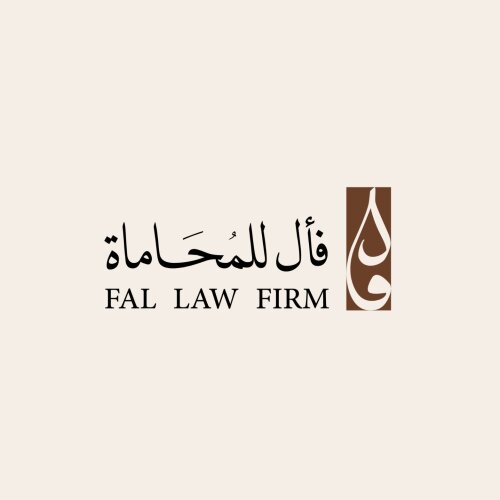Best Real Estate Contracts and Negotiations Lawyers in Saudi Arabia
Share your needs with us, get contacted by law firms.
Free. Takes 2 min.
Free Guide to Hiring a Real Estate Lawyer
Or refine your search by selecting a city:
List of the best lawyers in Saudi Arabia

About Real Estate Contracts and Negotiations
In the realm of property dealings, real estate contracts and negotiations are critical components that ensure the legal and smooth transfer of property rights between parties. These contracts can range from purchase agreements, lease agreements, financing agreements, to sales agreements. Negotiating these contracts requires a thorough understanding of legal terms, property values, and the local real estate market.
Law in Saudi Arabia
The real estate sector in Saudi Arabia is governed by a complex web of Sharia law, local regulations, and specific government decrees aimed at managing property transactions. The Saudi government's Vision 2030 initiative has also introduced new policies to bolster the real estate market, making it more attractive to foreign investors while ensuring compliance with local customs and legal frameworks.
Why You May Need a Lawyer
There are several scenarios where hiring a lawyer for real estate contracts and negotiations in Saudi Arabia is beneficial:
- Complex Transactions: Multi-party transactions or those involving large sums require expert legal advice to safeguard interests.
- Foreign Investments: If you are a foreign investor, understanding the local laws and navigating regulatory requirements can be challenging without legal help.
- Dispute Resolution: In cases of breaches of contract or disputes between parties, a lawyer can help mediate or litigate as needed.
- Contract Drafting and Review: Ensuring that all terms detail the agreed-upon terms and are legally binding is crucial to avoid future conflicts.
Local Laws Overview
Several laws and decrees govern real estate contracts and negotiations in Saudi Arabia:
- Sharia Law: As the foundational legal framework, all real estate transactions must comply with Islamic principles.
- Saudi Mortgage Law: Passed in 2012, aiming to regulate mortgage financing and ensure fair play in real estate funding.
- Foreign Ownership Regulations: Specific laws limit or condition the extent of property rights accessible by expatriates.
- Construction and Zoning Regulations: These govern the development process to align with urban planning strategies under Vision 2030.
Frequently Asked Questions
1. Can foreigners own real estate in Saudi Arabia?
Foreign ownership is subject to specific regulations and is generally limited to certain types of properties or regions, such as investment projects in economic cities.
2. What are the key elements of a real estate purchase contract in Saudi Arabia?
A legally binding agreement should include the property description, sale price, payment terms, obligations of each party, and a detailed description of any contingencies.
3. Are there any restrictions on leasing properties to expatriates?
Expatriates can lease residential properties, but commercial leasing may have more stringent conditions tied to business operations.
4. How are real estate disputes resolved in Saudi Arabia?
Disputes can be settled via negotiation, mediation, or through the legal court system following Sharia and local laws, depending on the nature of the conflict.
5. What role do real estate agents play in negotiations?
They facilitate the buying or selling process, provide market insights, and may help in drafting preliminary agreements but they are not substitutes for legal advice.
6. What taxes apply to real estate transactions?
Saudi Arabia has introduced VAT on real estate-related services, and specific levies like the 'Ejar' fee for rentals; however, these can evolve with new regulations.
7. How does the mortgage process work under Saudi law?
The Saudi Mortgage Law regulates how banks and financial institutions offer mortgage financing, requiring clear terms and adherence to Sharia principles.
8. How can I verify property ownership before purchase?
Use the Ministry of Justice’s electronic services platform to check property ownership and related obligations or encumbrances.
9. Are there any incentives for real estate investments in Saudi Arabia?
Under Vision 2030, initiatives like tax benefits, streamlined procedures, and economic zone developments aim to attract more investments.
10. How are development projects regulated?
The Saudi government imposes strict regulations and requirements for compliance with urban planning, zoning laws, sustainability criteria, and building codes.
Additional Resources
To gain more insights or seek assistance, consider reaching out to the following:
- Ministry of Housing: Offers resources on housing regulations and home financing.
- Saudi Arabian General Investment Authority (SAGIA): For foreign investment guidelines and clarifications.
- Local Real Estate Law Firms: Provide detailed legal advice tailored to specific needs in real estate transactions.
- Online Legal Resources and Portals: Many platforms offer the latest updates and FAQs about Saudi real estate laws.
Next Steps
If you need legal assistance with real estate contracts and negotiations, the following steps can help:
- Identify Your Needs: Clarify the type of legal assistance required - whether it's contract drafting, negotiation support, or dispute resolution.
- Research Local Experts: Look for lawyers or law firms specializing in real estate to ensure they have the necessary expertise and experience.
- Consult and Compare: Schedule consultations with potential legal advisors to discuss your specific circumstances and receive tailored advice or quotes.
- Legal Action: Decide on the course of action based on the legal advice received to ensure a smooth transaction or dispute settlement process.
Lawzana helps you find the best lawyers and law firms in Saudi Arabia through a curated and pre-screened list of qualified legal professionals. Our platform offers rankings and detailed profiles of attorneys and law firms, allowing you to compare based on practice areas, including Real Estate Contracts and Negotiations, experience, and client feedback.
Each profile includes a description of the firm's areas of practice, client reviews, team members and partners, year of establishment, spoken languages, office locations, contact information, social media presence, and any published articles or resources. Most firms on our platform speak English and are experienced in both local and international legal matters.
Get a quote from top-rated law firms in Saudi Arabia — quickly, securely, and without unnecessary hassle.
Disclaimer:
The information provided on this page is for general informational purposes only and does not constitute legal advice. While we strive to ensure the accuracy and relevance of the content, legal information may change over time, and interpretations of the law can vary. You should always consult with a qualified legal professional for advice specific to your situation.
We disclaim all liability for actions taken or not taken based on the content of this page. If you believe any information is incorrect or outdated, please contact us, and we will review and update it where appropriate.
Browse real estate contracts and negotiations law firms by city in Saudi Arabia
Refine your search by selecting a city.















